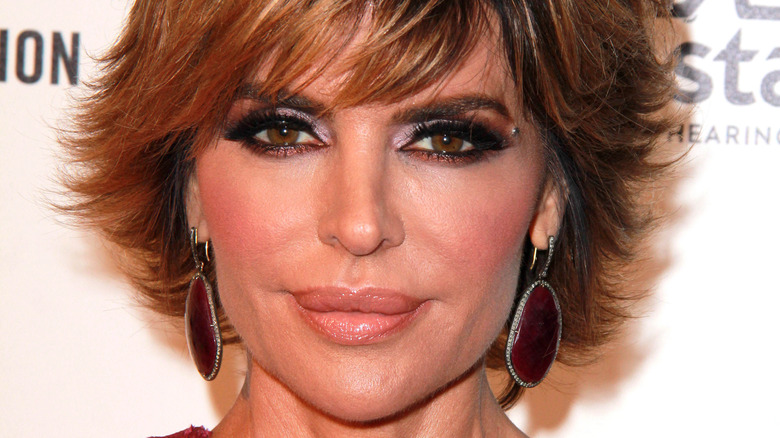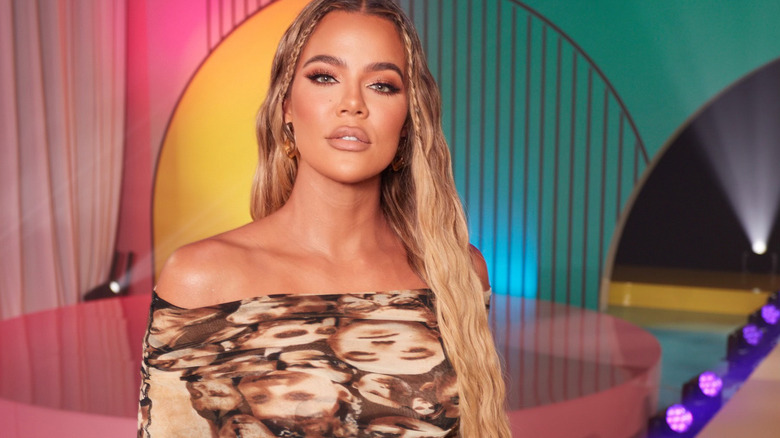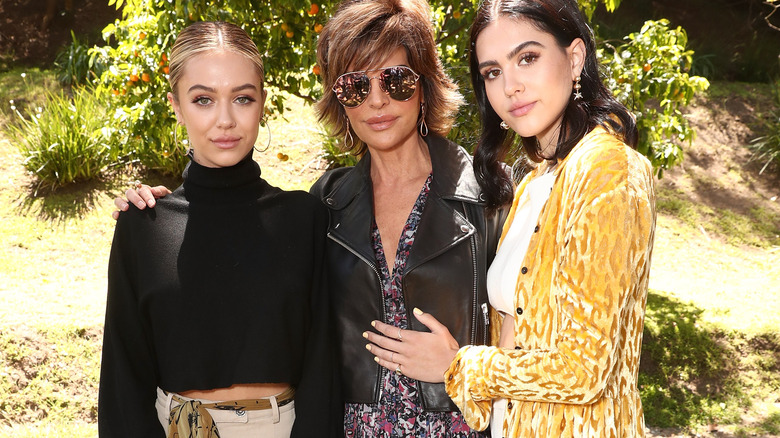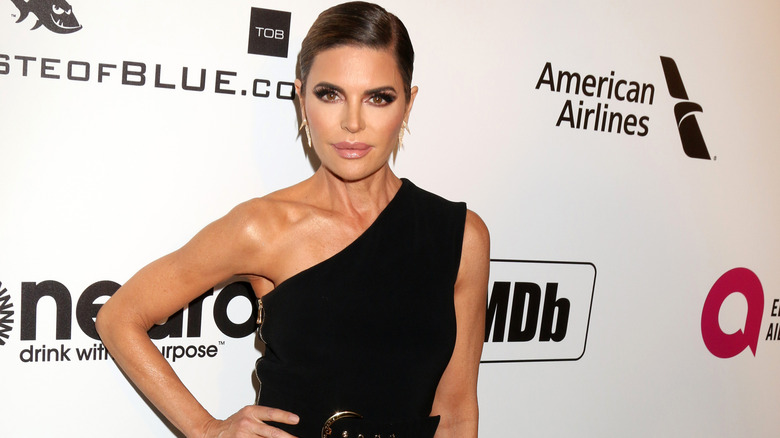The Lisa Rinna Paparazzi Lawsuit Explained
Lisa Rinna posted photos of herself, and now she's being sued. That's the short of the $1.2 million lawsuit the "Real Housewives of Beverly Hills" star is facing after sharing paparazzi images featuring Rinna and her daughters to her Instagram (via People).
As the reality star told the Los Angeles Times about her family, "We've had a very good relationship with the press and the paparazzi. That's why this is so shocking to me." As People explains, the federal suit was filed in June by the Backgrid agency, which says Rinna breached a copyright when she posted "at least eight photographs" of herself with her kids, taken in public settings — the images were watermarked, it's worth noting (via E! Online).
Fans of the former soap opera star won't be surprised that Rinna is not taking Backgrid's lawsuit at face value, and instead, plans to fight it, noting that there's been an uptick in similar lawsuits filed since the start of the pandemic. It's her assertion that the suit — and other like it — "weaponize" the Copyright Act, and agencies like Backgrid are using her to make up income lost in 2020 and 2021 due to Covid-19.
Celebrities' side of the story explained
As reported by E! Online, Rinna's countersuit alleges, "... It is only because of Ms. Rinna's hard work, dedication to her craft and resultant success that her image confers monetary benefits on the Plaintiff."
The court document goes on to state, "Having taken and used Defendant's images in this fashion, Defendant is informed and believes and thereupon alleges, that an implied license was created between herself and the Plaintiff (and subject photographers), whereby it was understood that Ms. Rinna would be permitted to use and comment on these photographs of her and her family without facing a claim of 'infringement.'"
Rinna is the not the first celebrity to face a lawsuit for copyright infringement surrounding images of said celebrity. Consider a tweet posted by Khloé Kardashian in 2018, which explained about why she didn't share photos of a Versace look, "Yes!! I have to license some of the images first. A paparazzi sued me in the past for reposting an image of MYSELF. So now it just takes me a little longer because I have to go and license the images so they don't get my [money]. MAKES NO SENSE."
Backgrid's side of the story explained
Of course, there are two sides to every story — and every lawsuit — and Backgrid's is being explained by legal experts.
As Jo Ardalan, who has previously represented Backgrid in similar cases, told the Los Angeles Times, "Once a photograph is posted, People magazine or Us Weekly will be less likely to buy it, because all their fans will have already seen it."
Attorney Neel Chatterjee added, "There's somewhat of a presumption that there's enough creativity in taking these photographs that they're protectable by copyright."
Meanwhile, the U.S. Copyright Law states, "The owner of copyright has the exclusive right to reproduce, distribute, and, in the case of certain works, publicly perform or display the work" (via People).
And that seems pretty straightforward.
Twitter responds to the situation
Over on Twitter, opinions about the lawsuit are divided, with one fan joking, "She could borrow it from @erikajayne." Others snarked that Rinna was loving the attention brought by the lawsuit, while another Twitter user opined, "No one should be able to make money off of someone else's image, simply because they might be famous. The paparazzi is wrong."
"I pray @lisarinna can win this battle and change those stupid laws," a supporter tweeted. Others pointed out that the paparazzi didn't ask her permission to take the photos, so they should not be copyrighted, but as another Twitter user commented, "But didn't Rinna notify the paparazzi where she'd be so they would show up?"
Ultimately, no matter the public's opinion about the lawsuit, Rinna is not backing down, explaining to the Los Angeles Times, "I understand paying a little bit. But to pay this much, it's very hard for me to say that's OK. There's something that's not right about this."



